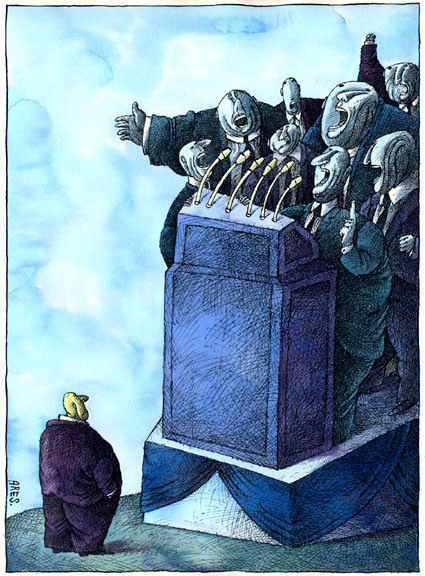Not everything is driven by the desire of individual politicians
“Serzh Sargsyan amended the Constitution because he wanted to…,” this formula repeated for more than a year is absolutely applicable in terms of political struggle and agitation. Such an approach provides particularly nothing for analyzing, although the motivation of one figure in the view of political processes is significant (given that he is the first figure of the country), but is not the most important factor. Suppose, the oppositions’ allegations or suspicions are correct, anyway, it does not incur from this that everything will be exactly the way that they have expected because not everything in Armenia depends on the willingness of the first figure.
If the matter, let’s say, is about North Korea, then, yes, the motivation of the country’s leader would be 100 percent decisive. In the case of Azerbaijan, Kazakhstan or Russia, the possibility to implement this desire can the assessed 70 percent. In the case of Armenia (Georgia, Moldova), it is maximum a 50 percent factor. Not going far away, let’s bring Armenia’s example. After the 1996 elections, Levon Ter-Petrosyan wanted to stay in office for 5 years, but he stayed less than a year had a half. After April 2008, Robert Kocharyan wanted to retain his decisive influence on Armenia’s political and especially economic life, but a certain redistribution of property took place, after which the second president began making strongly opposition speeches.
As you can see, the desires of the first figures do not come true, not because “the people go out to the streets and overthrow the criminal regime.” The reason is much more “earthy” and it (at least if analyzed) must be treated coolly. The elite in a country like Armenia depends on the president as much as the president depends on the elite.
Read also
I wrote “elite” and I expect the readers’ reaction, What elite? These ignorant and immoral have no right to be called an “elite”. What “elite” from Liska, Shmays and Tokhmakh and so on? There are, of course, different approaches on this, some people understand the word “elite” literally, as the chosen, the best, people with high intellectual and moral values. But it would be difficult for me to argue that the ruling elite not only in Armenia but also in the United States, comply to these high standards. In the 20th – 21st centuries, it seems that a view dominates that speaking about the “elite”, we should avoid making evaluative judgments. One of the common formulations is as follows: “The elite are the highest, relatively enclosed class of the society, which controls the main economic, political and cultural resources.”
Now let’s talks about the Constitutional amendments and try to eliminate populist judgments about who wanted to achieve what with it. In May 2017, parliamentary elections will be held, and even if the RPA will have the relative majority in the new parliament, it will no longer be the Republican Party that exists now. Again, let’s refrain from assessment, a “better one” or a “worse one”, simply the same Shmayses and Tokhmakhs will display themselves in a different way. Why? For the very simple reason, this staff of the parliament will implement completely different and much greater powers, and the President will formally continue his old powers until 2018, which, however, will inevitably receive new content. This will inevitably lead to some controversies even inside the same party. Not to speak about that the remaining parties, namely, ARF and PAP, will approach the elections not as they did to the referendum in the past, and will try getting as many votes that RPA will seriously negotiate with them.
Hence, “who wants what” is one thing, but “what will turn out” is completely different.
Aram ABRAHAMYAN,
Aravot Daily






















































